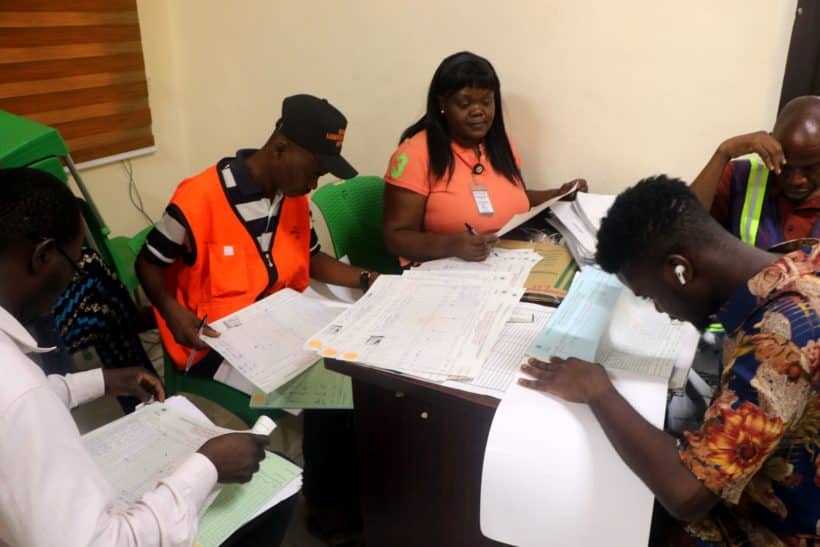
LAGOS, Feb 27 (Reuters) – Nigeria’s electoral commission has started announcing state-by-state results from Saturday’s presidential election.
All three major parties have complained of irregularities. There have been reports of violence and intimidation, though not on the scale of previous elections.
Here are details of the election process and current leaders.
WHO ARE THE MAIN CANDIDATES?
Eighteen candidates are running for president but only three are seen as having a realistic chance. They are Bola Tinubu from the governing All Progressives Congress party (APC), Atiku Abubakar of the main opposition People’s Democratic Party (PDP) and Peter Obi of the smaller Labour Party (LP).
A fourth contender, Rabiu Kwankwaso, of the New Nigeria People’s Party (NNPP), is expected to do well in parts of the north.
WHO IS LEADING?
According to a Reuters tally of provisional results announced by electoral officials in 20 of Nigeria’s 36 states, Tinubu leads with 39.7%or 5.4 million of valid votes counted, against 32.2% or 4.4 million votes for Atiku. Obi had polled about 16.3% or 2.2 million votes.
HOW ARE THE VOTES TALLIED?
Results from 176,846 polling stations are being counted manually and then relayed electronically to the Independent National Electoral Commission’s (INEC) headquarters in Abuja, which posts them on its website.
The results are also being tallied at the ward, local government and state level. A returning officer from each state then travels to Abuja with a tally sheet, which will be compared against the results sent directly by polling stations to the national collation centre.
After tallies from all the states and the federal territory of Abuja are verified, the INEC chairman will announce the national results and declare a winner.
HOW DOES A CANDIDATE WIN?
To win the presidential election, a candidate only needs a simple majority, provided they have at least a quarter of the votes cast in at least 24 states. If no candidate achieves that, a runoff will be held within 21 days.
(Reporting by MacDonald Dzirutwe and Tim Cocks; Editing by Nick Macfie and Stephen Coates)

